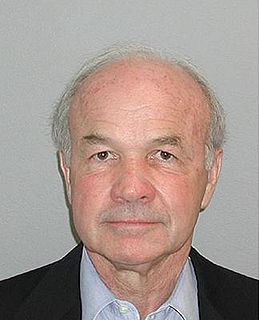A Quote by Kurt Eichenwald
Enron was becoming a virtual cult of creativity, often placing swagger over substance. New ideas were celebrated for their newness, for their potential; tried and true businesses like the pipelines were almost derided.
Related Quotes
But what if it were you? What if you were stuffed in a human body and let loose on this planet only to find yourself lost among your own kind? What if you were such a good person that you tried to save the life that you'd taken that you almost died trying to get her back to her family? What if you then found yourself surrounded by violent aliens who hated you and tried to hurt you and tried to murder you over and over again? What if you just kept doing whatever you could to save and heal people despite that? Wouldn't you deserve a life too? Wouldn't you have earned that much?
Back in the 1980s, when the internet was only available to a small number of pioneers, I was often confronted by people who feared that the strange technologies I was working on, like virtual reality, might unleash the demons of human nature. For instance, would people become addicted to virtual reality as if it were a drug? Would they become trapped in it, unable to escape back to the physical world where the rest of us live? Some of the questions were silly, and others were prescient.
The not-quite-sort-of lie works here too - often an ad will announce that "Congressman Johnson voted for a bill that gave tax breaks to companies like Enron." True - although the bill allowed all companies to accelerate depreciation of copying machines. Yes, Enron benefited, but Enron also benefited from the revolution of the Earth around the sun. Hardly an argument to freeze the planet in one spot.
Let's stick to the practical and the concrete: Would you like it if people lived in a virtual world? If machines were smarter than people? If, in the future, people, animals and plants were products of technology? If you don't like these ideas, then for you the computer and biological sciences clearly are dangerous.
The early entrants into the world of A.R., as with its cousin virtual reality, were disappointing: the phones were too weak, the networks were too slow, and the applications were too nerdy. But now the technological pieces are in place, and a whole generation - much of which is on Snapchat - has come to consider the camera almost a third arm.
Most people believe a new idea must be fully baked and ready-for-primetime. That is like saying a newborn child should have a college degree and be self-sustaining on day one. Like children, new ideas need to be nurtured, shaped, and protected. People often hold back ideas since they are not ready to defend sharp criticism. Companies that celebrate "creative sparks" and reserve judgment while ideas mature are the ones that enjoy significantly more creativity and innovation.
Often when you get a really good script, and you receive the new pages, you see that the entire thing has been dumbed down. Films in the '30s and '40s, that were huge blockbusters, were very sophisticated in their language, and the ideas they brought. There were no questions about whether the audience would get it or not.
The dissonance that I felt daily flew in the face of what Silicon Valley says about itself: that it is a meritocracy, that it values intelligence and creativity, that everyone has a fair shot if they just work hard enough. This was true only if you were technical, and even that may not always be enough: in the age of the social network, who you know and who your friends were was becoming increasingly important.




































